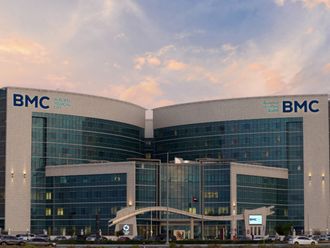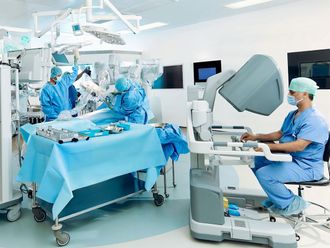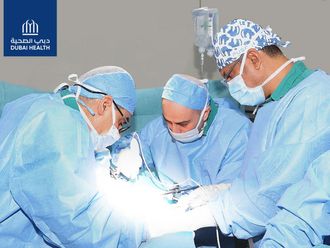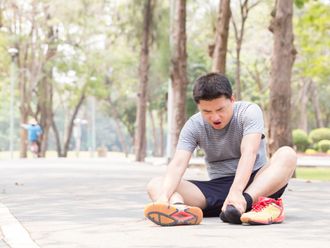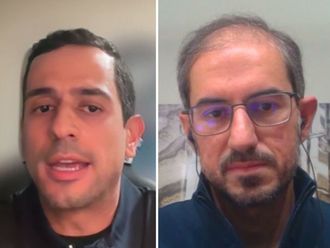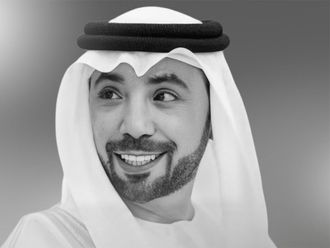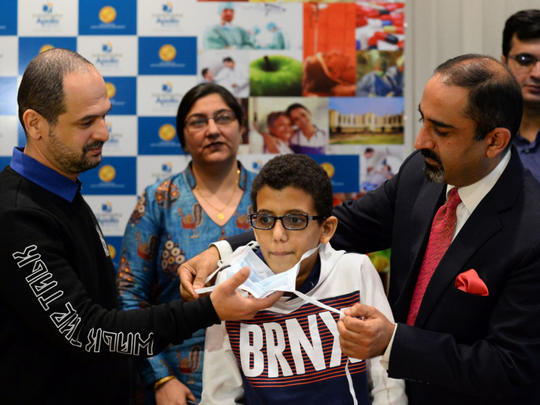
Abu Dhabi: From the time he was born, Khalid Abdullah, 13, had been spending around 10 to 15 hours a day under a phototherapy machine due to a rare liver disease that afflicts one in a million children.
Called the Crigler Najjar Syndrome or CNS, the condition occurs due to the absence of an essential enzyme, GT, in the liver at birth. This deficiency results in a toxic form of bilirubin to rise in the blood to a very high level, which can seep into the brain tissue and produce irreversible complications, according to doctors.
Continuous phototherapy is the only way to prevent brain damage and hearing loss due to this condition, according to experts.
Khalid, born to a Yemeni father and an Emirati mother in the UAE, was depending on phototherapy, or light therapy, that administers doses of bright light to treat his rare medical condition. His eyes and body were mostly yellow [because of jaundice, a constant effect of CNS]. But last week, the teenager, who studies in the 7th grade in a Sharjah school, experienced a breakthrough in his condition when he underwent a 12-hour-long liver transplant surgery at the Indraprastha Apollo Hospital in New Delhi, the Indian capital.
His father, Abdullah Salim Al Kindi, donated a part of his liver to his son.
“With great happiness, I called my family members back home and told them to remove the [three phototherapy] machines from the house [as we no longer need them],” Al Kindi, 47, told Gulf News on the phone from New Delhi on Thursday.
A smiling Khalid greeted the doctors after the surgery. “When Khalid saw his eyes were white, he smiled. Because he has always seen his eyes yellow. His smile was the most gratifying,” a doctor told Gulf News on phone from New Delhi.
“He can now enjoy an excellent quality of life,” said Prof Anupam Sibal, group medical director and senior paediatric gastroenterologist, Apollo Hospitals Group.
Of the 2,800 liver transplants conducted by the hospital since 1998, 220 were performed on children, of which, five were for this rare condition, Dr Sibal said. “Of the other four children, two were from Pakistan, one from Qatar and one from India,” Dr Sibal added.
A liver transplant surgery costs $40,000 (Dh146,800) at the hospital, he said.
Due to his condition, Khalid could not attend school for a while but now he is eager to get back to classes, said his father. “He is excellent in his studies — always among the toppers in his class.”
It was a taxing schedule young Khalid had followed everyday. Though he spent some part of the day playing outside with his friends, at night, he would need to be under the phototherapy machine, “sometimes for 10 to 15 hours”, said Al Kindi, who works as a cashier at Dubai Health Authority.
Al Kindi has been living in the UAE for 19 years. He and his Emirati wife, a teacher, will be staying for three more weeks in New Delhi with their son for further check-ups.
Though Khalid has been discharged from the hospital, he needs regular check-ups every two-three days for 21 days, informed the father.
“We are waiting to fly back to a happy life in the UAE,” Al Kindi said.
Phototherapy
It is the most common treatment to reduce high bilirubin levels that cause jaundice in a newborn. In its standard form, the baby lies in a bassinet or enclosed plastic crib (incubator), and is exposed to a type of fluorescent light that is absorbed by the baby’s skin.


